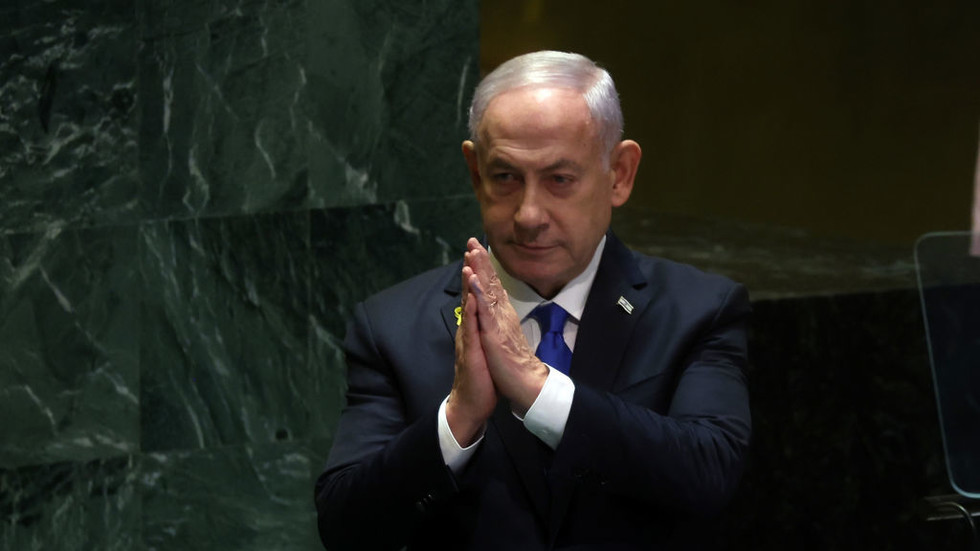Israeli Prime Minister Benjamin Netanyahu is reportedly poised to agree to a U.S.-brokered ceasefire with Hezbollah, pending minor finalizations and a strategic approach to presenting the outcome as a victory to the public. Recent reports from Israeli and American media indicate that the proposed ceasefire would see both the Israel Defense Forces (IDF) and Hezbollah halting their military actions. Key provisions of the deal entail Hezbollah withdrawing its forces from southern Lebanon beyond the Litani River while the IDF would retreat from the area between the river and the established ‘blue line’ that delineates the border between Lebanon, Israel, and the occupied Golan Heights. To ensure compliance, an international body, spearheaded by the U.S., would monitor the demilitarization of southern Lebanon, with the stipulation that any violations by Hezbollah could provoke additional military interventions from Israel.
The backdrop to this potential ceasefire is a series of escalating conflicts that have led to significant casualties. Reports indicate that Israeli airstrikes in Lebanon have resulted in over 3,670 fatalities since the beginning of the current conflict in September 2023, although this death toll does not differentiate between civilian and militant casualties. The IDF has confirmed that it has lost around 80 soldiers and law enforcement personnel during its operations in Lebanon. However, Hezbollah claims that Israel is underreporting its losses, suggesting that the real number is much higher. The violence escalated after the IDF’s extensive bombing campaign and ground operations in Lebanon, which resulted in the deaths of numerous high-ranking Hezbollah leaders, including its commander, Hassan Nasrallah.
Negotiations for the ceasefire have faced obstacles, notably due to the issuing of arrest warrants for Netanyahu and former defense minister Yoav Gallant by the International Criminal Court (ICC). Initial discussions stalled when France, serving as a mediator, indicated that it would enforce these warrants. However, the talks resumed after U.S. envoy Amos Hochstein pressured Netanyahu, arguing that a move towards a ceasefire was essential if Israel wanted to avoid further escalation of the conflict. These developments underline the international dimensions of the situation and highlight how global diplomatic efforts are intricately tied to the regional conflict.
Netanyahu has been actively engaging with cabinet members and intelligence officials to strategize on the ceasefire’s public presentation. His primary concern involves framing the ceasefire as a strategic success to the Israeli populace, particularly amidst growing war fatigue and a public increasingly weary of ongoing conflicts. Despite ongoing discussions of peace, the IDF has persistently carried out airstrikes in Beirut, indicating that military actions continue as negotiations progress. The situation remains precarious, with airstrikes on Lebanon leading to additional casualties and retaliatory rocket fire from Hezbollah into northern Israel, which has resulted in injuries to civilians.
Amidst this backdrop, the dynamics of regional security and military strategy remain focal points of concern. The planned demilitarization and potential renegotiation of territorial boundaries carry implications for future Israeli-Hezbollah relations and the general stability of the region. The prospect of international oversight, particularly from the U.S., aims to ensure compliance and prevent further hostilities, yet the effectiveness of such arrangements remains to be seen. With both sides enduring significant losses, the urgency for a ceasefire becomes critical but remains entangled with political narratives and public perceptions.
In conclusion, the current landscape reflects a complex interplay of military action, diplomatic negotiation, and public sentiment. Netanyahu’s willingness to consider a truce reflects an understanding of the challenges posed by ongoing conflict, yet it is intertwined with the need to convey perceived victories to maintain political support. The ceasefire negotiations, indicative of broader geopolitical interests, underscore the involvement of international powers while highlighting the fragility of security in the region. The outcome of these discussions will significantly influence the future trajectory of Israeli-Hezbollah relations, as both groups navigate the turbulent waters of warfare, loss, and the quest for a sustainable peace.

